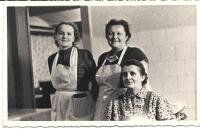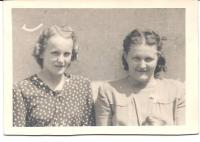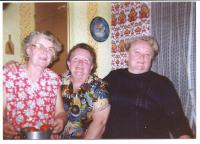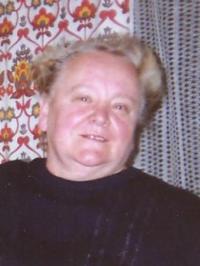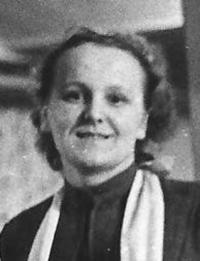My mom always used to tell me not to do anything I should be ashamed of
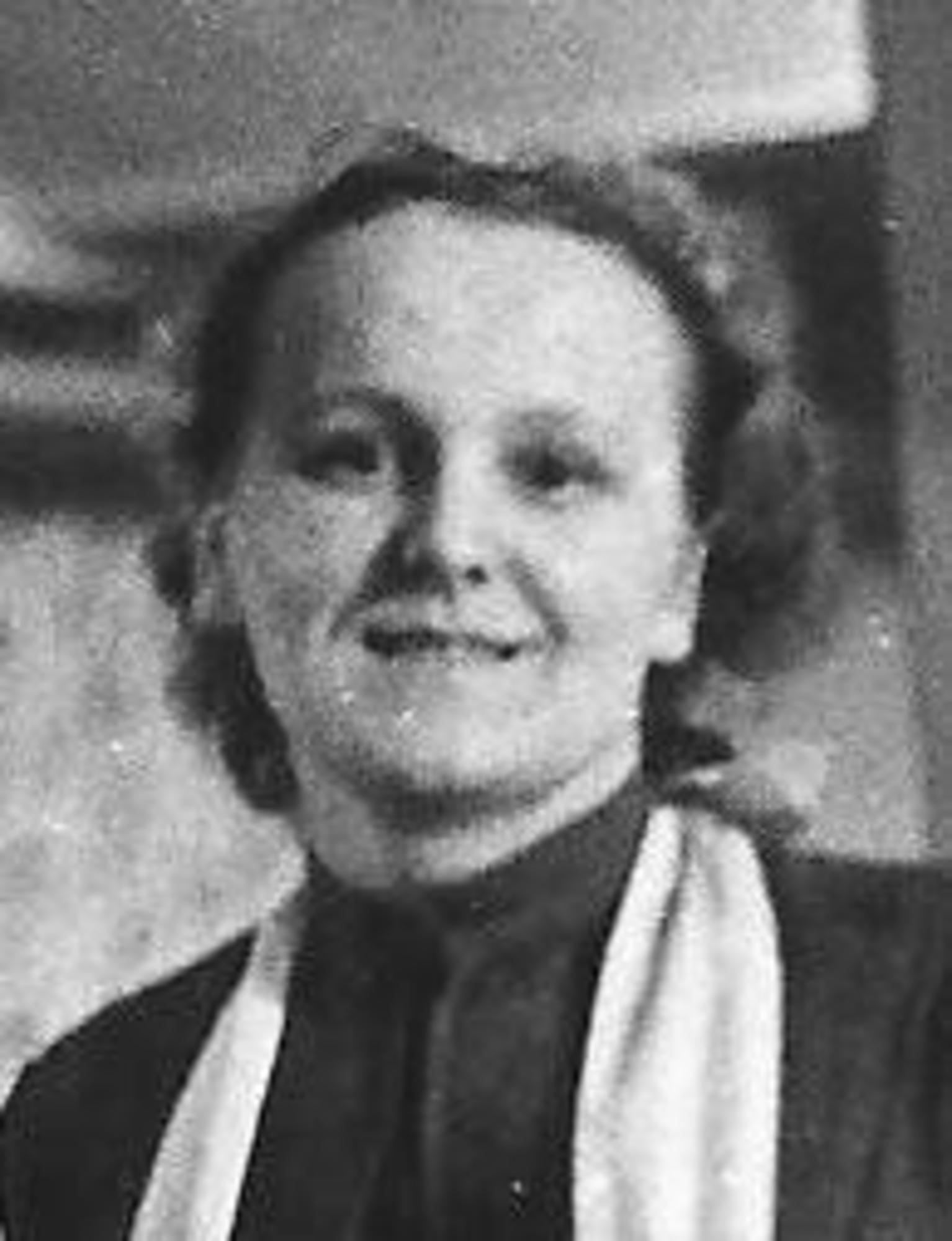
Stáhnout obrázek
Marie Blablová, née Šumná, was born in Kopřivnice on August 22, 1926. When she was seven years old, she joined her older sister Lída the Girl Scouts in Kopřivnice. She learned many scout skills, went out on trips and to the summer scout camp in Soláň three times. The meetings were usually held at somebody‘s house and the khaki shirts were made by their friend. The Scout movement was banned after the Second World War started and the Scouts in Kopřivnice could no longer convene. During the war she worked in a canteen, where together with others, she helped the Russian woman prisoners, brought food to the partisans and money to the prisoners‘ families. After the war she left for Brno to take care of her sister Lída, who had gotten married there through a newspaper advertisement, but her husband died during an air strike and she lost a leg herself. She moved back to Kopřivnice after a year and continued to work in a shop. She later got married and had two kids. She never got back to the Scout movement. She currently lives in Kopřivnice.
